Backlash in China after front-line doctor dies
- Published
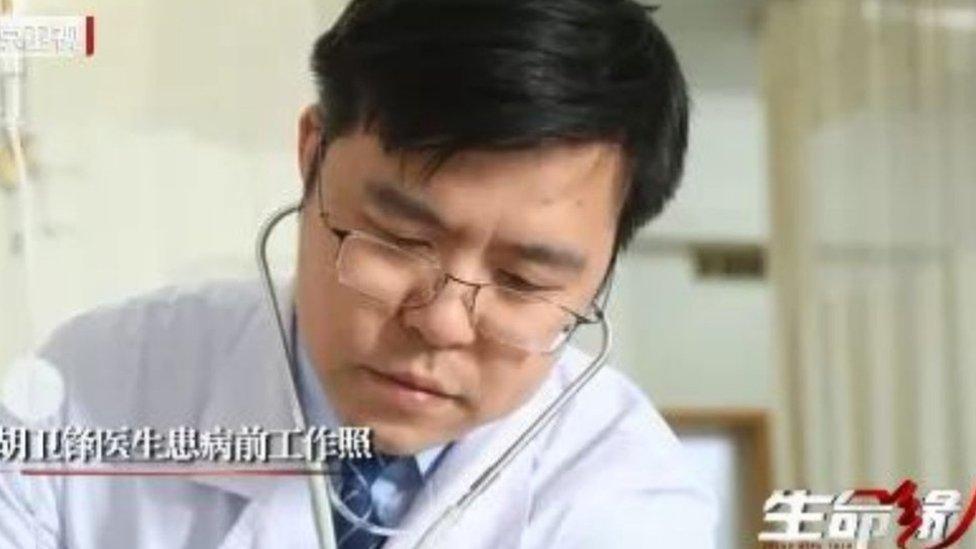
Dr Hu Weifeng
The death of a front-line doctor in central China is provoking a backlash against the authorities' handling of the coronavirus pandemic.
Dr Hu Weifeng passed away on 2 June, after a four-month fight with Covid-19.
He made headlines in March, when his skin turned black "due to liver dysfunction" during his treatment.
The exact cause of his death has not been made public but the news has triggered an outpouring of anger on Chinese social media sites.
Who was Hu Weifeng?
Dr Hu Weifeng was an urologist, who was treating patients at the Wuhan Central Hospital - where Covid-19 was originally identified.
He tested positive for the virus in January, during the early stages of the Chinese outbreak, and was transferred to different hospitals for treatment the following two months.
His condition initially improved in mid-March; however, he then suffered cerebral haemorrhages in late April and May.
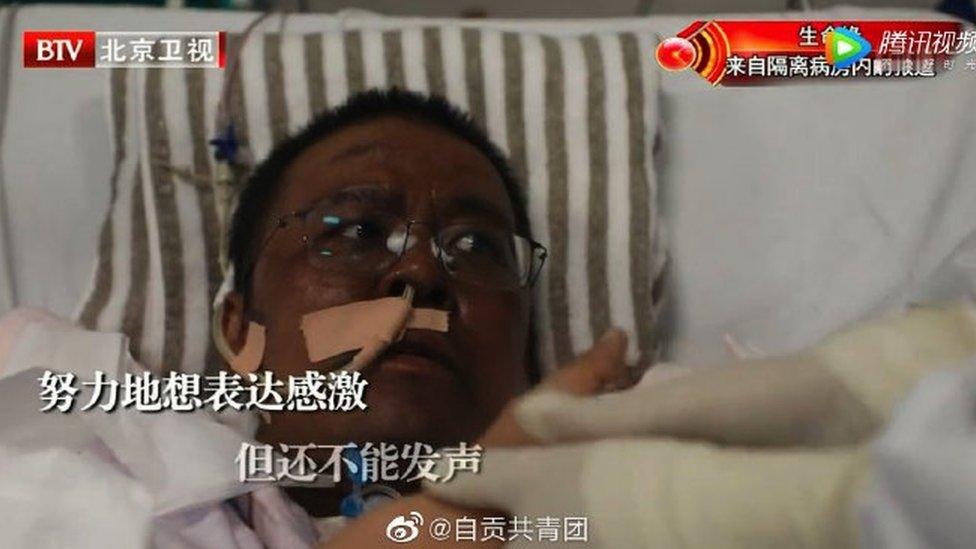
Hu Weifeng tested positive for Covid-19 in January
Dr Hu Weifeng, and a colleague, cardiologist Yi Fan, went viral in April after official media publicised their "tough battle against the virus".
Users of the popular Sina Weibo microblog were stunned at the time to see that the pigmentation had changed in their faces, which media said "could be due to abnormal liver functions".
The two became known as "the two black-faced Wuhan doctors", and they won nationwide praise for fighting back against the virus, as both had been critically ill.
The Communist Youth League called them "angels who had fought with death", and Weibo users sympathised with just how much they had to endure on the front-line.
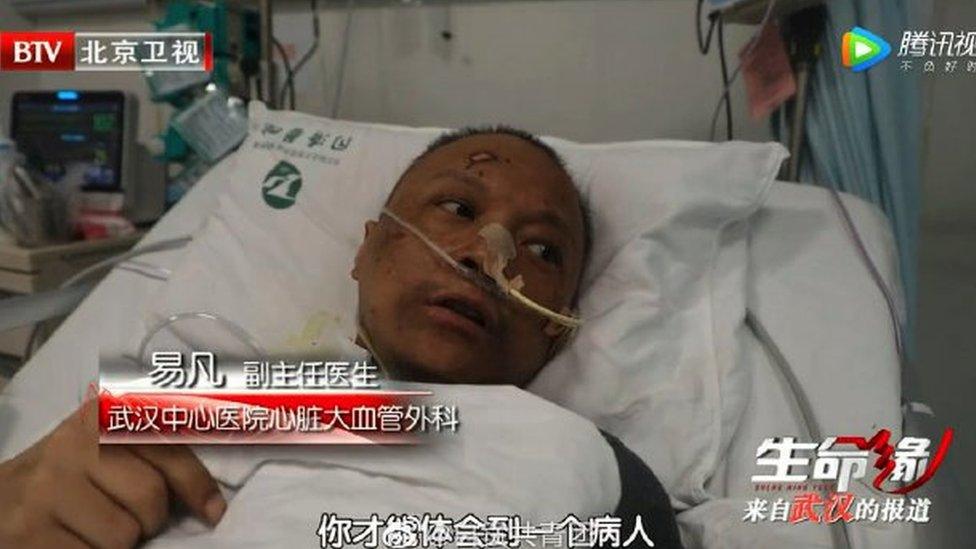
Dr Yi Fan's skin also changed colour while he was ill
Social media users commented at the time on how their skin was a physical "scar" that they had to live with, after fighting on China's front line.
China Daily says that Dr Yi was only discharged on 6 May, whereas Dr Hu appeared never to recover.
Worked at same hospital as 'whistleblower'
Many papers, including the national Global Times newspaper, have been noting that Dr Hu "worked in the same hospital as Li Wenliang", external.
Dr Li became known as China's "whistle-blower" doctor, who first warned colleagues about the virulence of the virus back in late December.
His death sparked national outrage, as it became clear that the authorities had tried to silence him by giving him a reprimand.
It is unclear whether the two knew each other, as the two doctors worked in different departments. There are reportedly more than 4,200 hospital employees at the Wuhan Central Hospital, external.
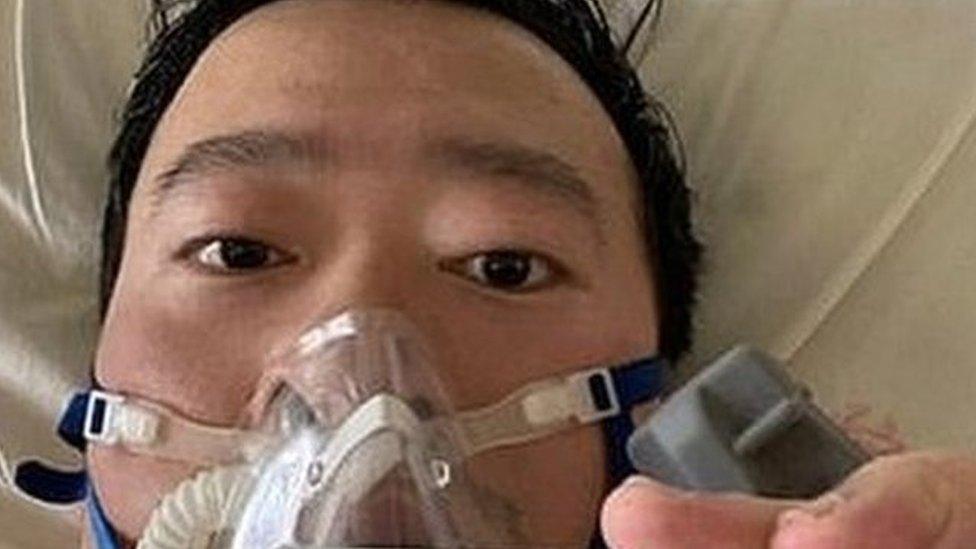
Dr Li had posted a picture of himself on social media from his hospital bed
It's also unclear whether they could have caught the virus off one another - both Li Wenliang and Hu Weifeng contracted the virus in mid-January, but Global Times says that some 68 members of staff tested positive for Covid-19, and more than 200 underwent medical observation.
The reaction to Dr Hu Weifeng's death, however, has been similar to that of Dr Li Wenliang's: pure anger.
The cause of his death has not been made public; however, Global Times says that "his situation was severe and he became emotionally unstable".
Tens of thousands of Sina Weibo users have used the hashtag #WuhanCentralHospitalDoctorHuWeifengPassesAway. While many are posting candle emojis - a common practice to mark the respects of anyone who has died - others are questioning how he died, and are calling for top officials at the hospital to be sacked.
"When will the leaders of the Wuhan Central Hospital be held accountable?" one user asked. "This is the fifth medical worker to pass away at the Wuhan Central Hospital due to the coronavirus," another said.
The anti-establishment newspaper Epoch Times, which is blocked in mainland China, says that senior staff at the hospital "severely suppressed the early warnings [of Covid-19] to medical staff, and forced them to be exposed to huge cases of the virus without protection", external.
Some Weibo users are dismissing Dr Hu's "instability", and questioning how the hospital's leadership team are feeling.
Concerns about transparency
There are also many on Weibo questioning the transparency of the hospital's data, following Dr Hu's death.
"Hadn't the patients in Wuhan been cleared a long time ago?" one Weibo user asks, receiving more than 400 likes.
This has led to alarm that there may still be many patients undergoing treatment for health problems that are a direct consequence of Covid-19, but have since tested negative.

You may also be interested in...
On the front line in Wuhan

On 27 April, the National Health Commission said that Wuhan had discharged all of its coronavirus patients.
There were more than 50,000 confirmed cases of Covid-19 in Wuhan. And the Wuhan Central Hospital was one of the worst affected hospitals.
The official Xinhua news agency says that "the number of deaths and the infection rate were the highest of any Wuhan hospital, external" during China's outbreak.
BBC Monitoring reports and analyses news from TV, radio, web and print media around the world. You can follow BBC Monitoring on Twitter and Facebook.
- Published7 April 2020
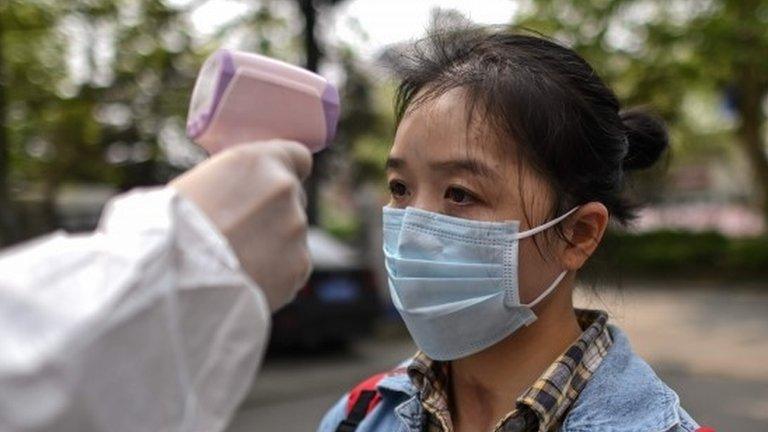
- Published9 June 2020
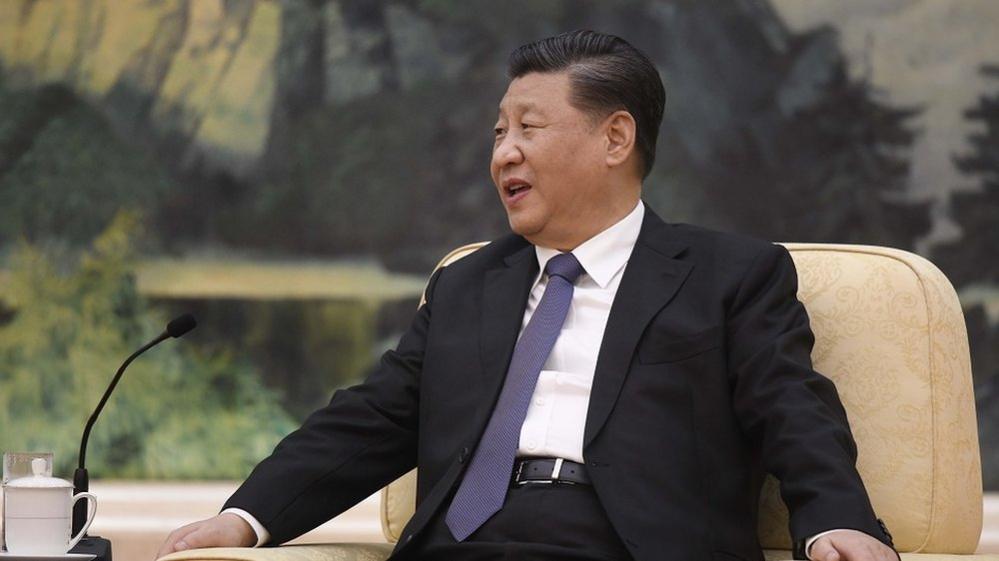
- Published7 February 2020
